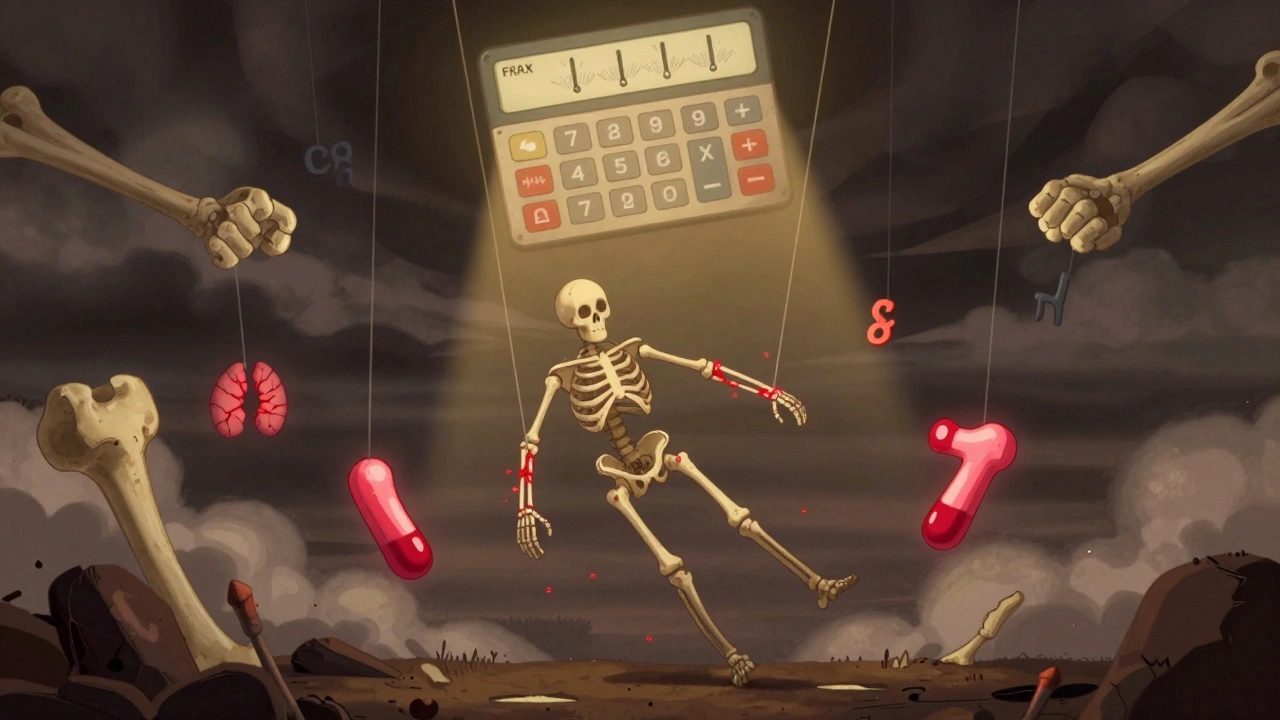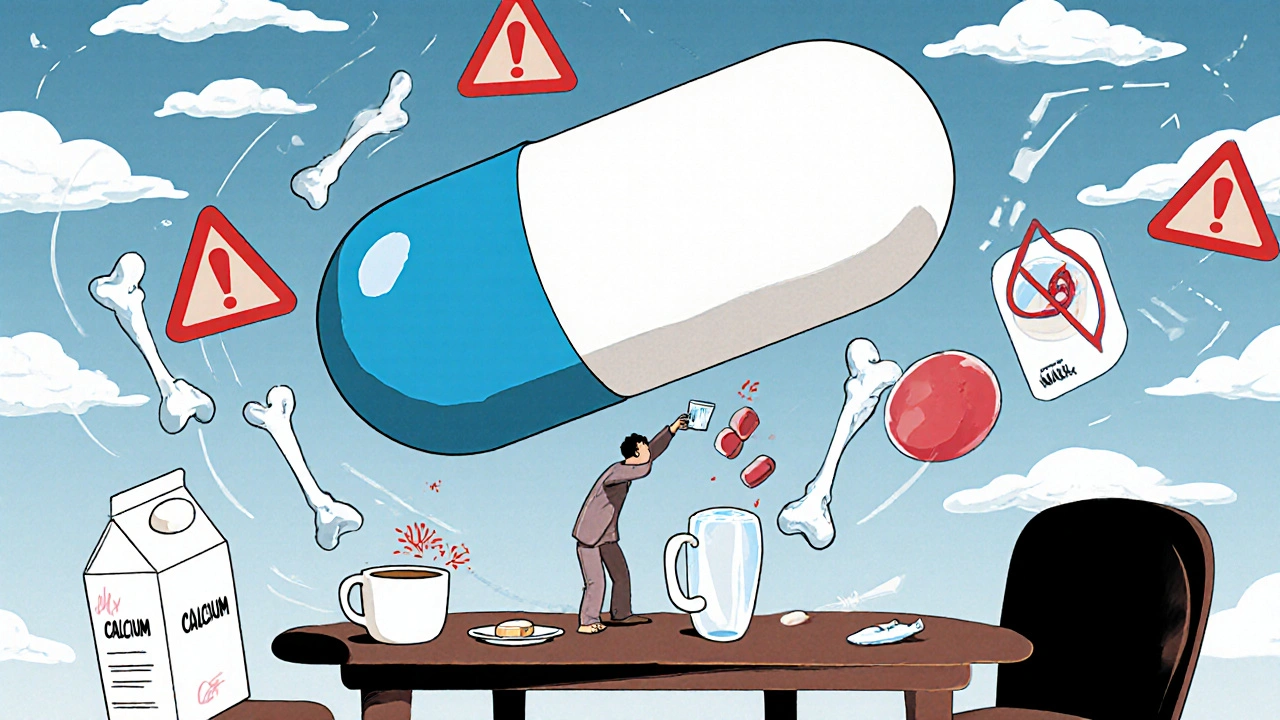Bisphosphonates: What They Are, How They Work, and What You Need to Know
When your bones start losing strength, bisphosphonates, a class of drugs designed to slow bone loss by targeting cells that break down bone tissue. Also known as bone resorption inhibitors, they’re among the most prescribed treatments for osteoporosis and other conditions that weaken the skeleton. These aren’t magic pills—they work slowly, over months or years, and their real value shows in long-term fracture prevention, not quick fixes.
Bisphosphonates don’t build new bone. Instead, they quiet down the cells that eat away at it—osteoclasts. That’s why they’re used for people with low bone density, postmenopausal women, or those on long-term steroids. But they’re not the only option. Drugs like denosumab or teriparatide do different things—some stimulate growth, others block breakdown. Bisphosphonates sit in the middle: proven, affordable, and widely studied. They come as pills you take once a week or once a month, or as yearly IV infusions. The pills need strict rules: take them on an empty stomach, wait 30 minutes before eating or lying down. Skip those steps, and they won’t work—or worse, they’ll irritate your esophagus.
Side effects are real. Some people get stomach upset, joint pain, or jawbone problems (osteonecrosis), especially after dental work. Others develop rare thigh fractures after years of use. That’s why doctors don’t hand them out like candy. You’re not just taking a pill—you’re managing a long-term bone health plan. That’s why the posts below cover related topics: how these drugs interact with other meds like allopurinol or azathioprine, how they fit into broader treatment plans for gout or high blood pressure, and what alternatives exist when bisphosphonates aren’t right for you.
You’ll find real comparisons here—not theory. People who switched from one bisphosphonate to another. Those who tried supplements instead. Others who learned how lifestyle changes—like getting enough vitamin D or walking daily—can make a difference alongside the meds. This isn’t just about drugs. It’s about how your bones, your diet, your other conditions, and your daily habits all connect. The posts below give you the practical side: what works, what doesn’t, and what to ask your doctor before starting—or stopping—any of these treatments.


